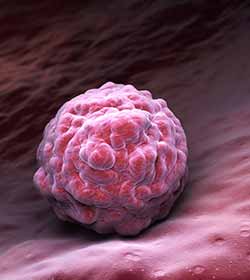What is Endometrial Receptivity Analysis (ERA)?
ERA evaluates the status of the woman’s endometrial receptivity to prevent implantation failure. Diagnostic technique patented* by IGENOMIX that identifies the patient’s unique “window of implantation” leading to a personalized embryo transfer (pET) based on the individual results obtained. 24% of ERA patients are non-receptive. In 88% of cases, a second endometrial biopsy will determine the window of implantation and therefore the period in which the patient is receptive.
What is the endometrium?
Problems with the endometrial lining are one of the leading causes of infertility in women. The interior of the uterus is lined with a tissue called endometrium, which is prepared each month for the arrival of an embryo and is the place where the embryo implants and resides during gestation. When this does not occur, menstruation begins shedding the endometrial lining.

Source: Igenomix.com
Endometrial receptivity
Sometimes embryo implantation in the endometrium does not develop successfully. This failure can occur for different reasons. A particularly important factor is endometrial receptivity. The endometrium is receptive when it is ready for embryo implantation to occur. This period of receptivity is called the window of implantation.
Who should consider the ERA test and why?
The ERA test has been proven to help patients who have experienced implantation failure while using high quality embryos. Patients who have had 2 or more unsuccessful embryo transfers and who have had concerns with endometrial lining (example: thin endometrial lining).
In general, any patient who has gone through an IVF treatment could be favoured by her endometrial diagnosis before receiving the embryos.
Advantages of the ERA test
The ERA test has been shown to be highly sensitive and specific in the detection of genetic expression profiles associated with receptivity. It allows the personalized window of implantation to be detected before the patient starts using assisted reproduction techniques. This is more sensitive than the classical method endometrial dating, based on histological criteria, which is highly subjective and has been proven to be unable to discriminate between fertile and infertile patients.

Source: Igenomix.com
What is the purpose of the ERA test?
The ERA test is used to evaluate the stage of an endometrium to determine if a receptive or non-receptive genetic profile is present at the time of biopsy. In the case where the endometrium is non-receptive, the test enables us to find a personalized window of implantation for each patient.
Sample extraction and shipment
An endometrial biopsy taken from the uterine fundus must be immediately introduced into an ERA cryotube and preserved in a refrigerator (4-8°C/ 39-46°F) for at least 4 hours.
In order to ensure the highest sample quality, Igenomix Japan will receive the specimen within 120 hours from the time of collection at room temperature and will not reach more than 35°C.
Limits of the technique
The ERA test has a specificity of 0.8857 and a sensitivity of 0.9975 for receptivity profile classification. The biopsy procedure, though simple, has a risk (less than 5%) of not obtaining a sufficient quantity and/or quality of endometrial tissue, in which case it is impossible to perform the test and a new sample extraction would be required.
When is the embryo transfer done?
The blastocyst transfer should be performed in the same type of cycle and on the same day in which a receptive result was obtained. A receptive result indicates the ideal day on which the blastocyst transfer should be performed.
EMMA (Endometrial Microbiome Metagenomic Analysis)
Raffles Fertility Centre also offers EMMA (Endometrial Microbiome Metagenomic Analysis). A screening test to evaluate the endometrium at the microbiological level. EMMA will determine whether the uterine microbial environment is optimal or not for embryo implantation.
ALICE (Analysis of Infectious Chronic Endometritis), detects the bacteria causing chronic endometritis to improve your patient’s reproductive prognosis.
EMMA includes the ALICE test, so it indicates the possible presence of bacteria that can cause chronic endometritis, further other pathogenic bacteria.
Source: Igenomix
Make An Appointment
Make an appointment online or contact the fertility clinic to consult a fertility specialist. Under Specialist Appointment Details, select "Assisted Reproductive Medicine" or "Obstetrics, Gynaecology & Fertility".
Make an enquiry. We will get back to you within 2 working days. You can reach us at 6311 1250.